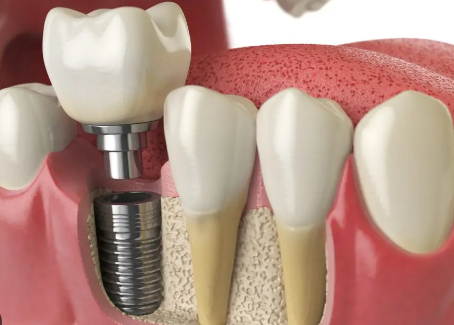In the realm of modern dentistry, dental implantology stands as a beacon of hope and innovation for those seeking to restore their smiles and oral functionality. From its humble beginnings to its current state of advancement, dental implantology has undergone remarkable evolution, reshaping the landscape of dental care. However, as with any field, there are always new horizons to explore and bold steps to take. In this article, we delve into the next frontier of dental implantology, exploring the current state of the field and the promising future it holds.
Dental implantology has come a long way since its inception. Initially developed as a solution for replacing missing teeth, it has evolved into a comprehensive discipline encompassing various surgical techniques, materials, and technologies. Today, dental implants offer patients a durable and natural-looking alternative to traditional dentures and bridges, providing unmatched stability and functionality.
However, despite its many advantages dental implantology will always involve some post-surgery pain. This discomfort is a natural consequence of the surgical process, which involves the placement of titanium implants into the jawbone. While advancements in anesthesia and surgical techniques have helped alleviate pain and reduce recovery times, it remains an inherent aspect of the procedure. Nevertheless, the benefits of dental implants far outweigh the temporary discomfort, offering patients a long-term solution to tooth loss and restoring their confidence and quality of life.
Looking ahead, the future of dental implantology holds great promise. As technology continues to advance at a rapid pace, researchers and practitioners are exploring new avenues to further improve the efficacy and accessibility of dental implants. One such area of innovation lies in the development of biomaterials that mimic the properties of natural teeth more closely. These advanced materials not only enhance the stability and durability of dental implants but also promote better integration with the surrounding bone tissue, resulting in improved long-term outcomes for patients.
Furthermore, advancements in imaging technology have revolutionized the planning and placement of dental implants. Cone beam computed tomography (CBCT) and computer-aided design/computer-aided manufacturing (CAD/CAM) systems allow practitioners to visualize the oral anatomy in three dimensions with unparalleled accuracy. This enables precise implant placement and customization, minimizing the risk of complications and optimizing aesthetic outcomes.
In addition to technological innovations, the future of dental implantology is also shaped by ongoing research into regenerative medicine and tissue engineering. Scientists are exploring novel approaches to stimulate bone regeneration and enhance soft tissue healing around dental implants. By harnessing the body’s own regenerative capabilities, these groundbreaking therapies have the potential to revolutionize the field, offering patients faster recovery times and superior long-term outcomes.
Overall the future science looks good in terms of personalized medicine and genetic testing. Researchers are investigating the role of genetics in determining an individual’s susceptibility to peri-implant diseases and implant failure. By identifying genetic markers associated with these conditions, clinicians can tailor treatment plans to each patient’s unique genetic profile, optimizing outcomes and minimizing risks.
Despite these advancements, challenges remain on the horizon. Access to dental implantology services remains limited for many individuals due to cost barriers and disparities in healthcare access. Addressing these inequities will be crucial in ensuring that all patients have access to the life-changing benefits of dental implants.
Dental implantology has come a long way, but the journey is far from over. As we stand on the threshold of a new era of innovation, the future of dental implantology holds tremendous promise. With continued advancements in technology, materials, and regenerative medicine, we can look forward to a future where dental implants are more accessible, effective, and personalized than ever before. While some post-surgery pain may always be inevitable, the rewards of a restored smile and improved quality of life make it a journey worth taking.


